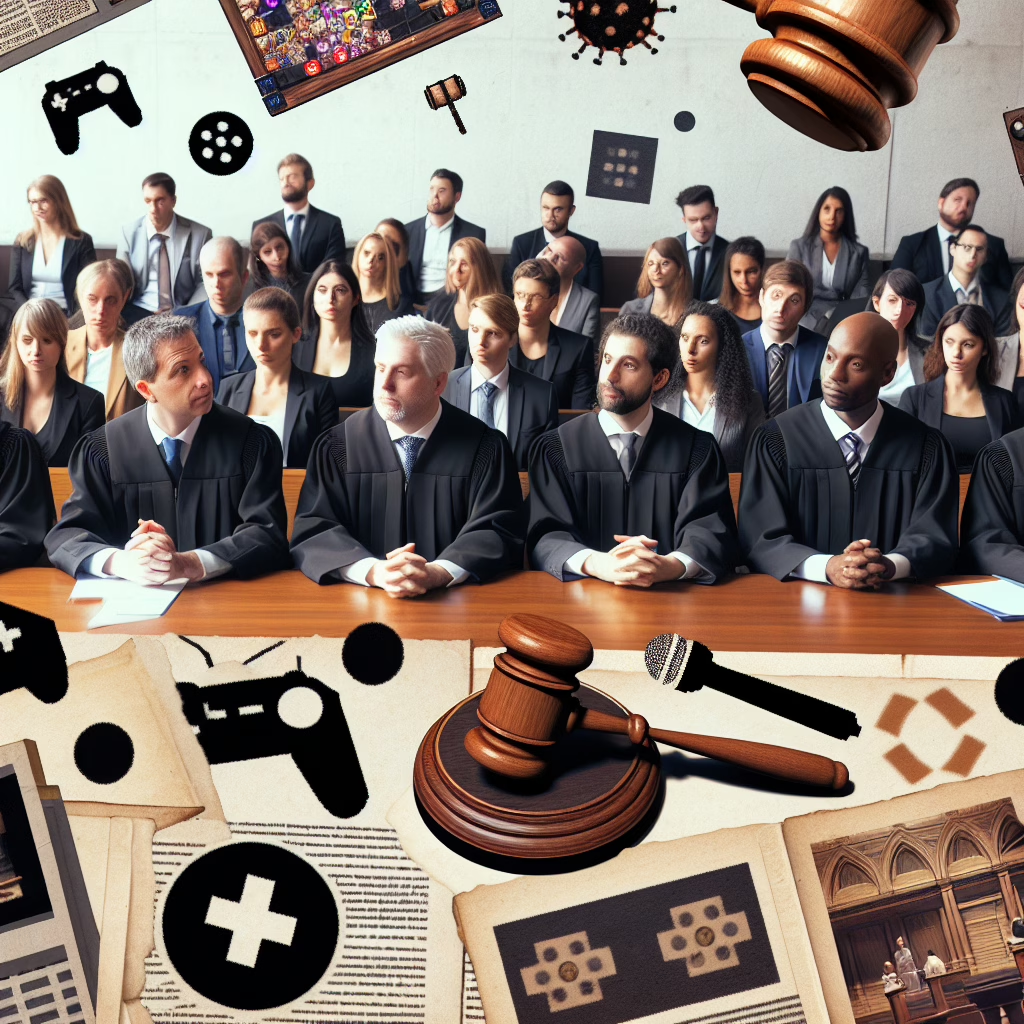In a world where video game characters can conquer galaxies, it seems some real-life players are facing a different kind of battle altogether. Yes, we’re talking about the recent verdict involving former senior Ubisoft staff members who were found guilty in a French harassment case. This saga not only serves as a stark reminder of workplace conduct but also gives us a chance to chuckle (or sigh) at the absurdity of human behavior.
What Happened at Ubisoft?
In a twist that would make any plot twist in a blockbuster game seem tame, several former senior employees at Ubisoft found themselves in hot water after being accused of harassment. The Paris court decided it was time to level up justice, handing out fines and suspended sentences to these individuals. It’s like they received a “Game Over” screen, but instead of losing lives, they faced fines that could certainly be described as ‘not fun’!
Now, let’s break down what that means. The main characters in this drama were convicted for their actions during their tenure at the company. The verdict came with fines totaling €20,000 for one individual and €15,000 for another. This is not Monopoly money, folks; it’s real cash that could have been used for a lot of virtual loot boxes.
The Court’s Findings
The court’s findings revealed a culture of misconduct that had been brewing like an overcooked potion in a cauldron. It wasn’t just isolated incidents; it was more like a multiplayer match where everyone forgot to play fair. Witnesses spoke about inappropriate comments and behaviors that created an uncomfortable environment for many employees.
In a surprising turn of events, one of the accused tried to defend their actions by claiming it was all just ‘banter’. Ah yes, the classic defense—because nothing says “I’m innocent” quite like suggesting harassment was merely an attempt at humor! However, the court didn’t buy this explanation, recognizing that sometimes what we think is funny can actually be very serious.
Implications for the Gaming Industry
This ruling sends ripples through the gaming industry like a well-placed grenade in a multiplayer FPS. It highlights the need for companies like Ubisoft to seriously evaluate their workplace environments and ensure that everyone feels safe and respected. After all, if we can trust our avatars to save the world from impending doom, surely we can trust our colleagues not to make crude jokes during meetings!
It also opens up discussions on how gaming companies can implement better policies regarding harassment and misconduct. Perhaps it’s time for some developers to take notes from RPGs where character development isn’t just about leveling up skills but also about growing as decent human beings.
A Silver Lining?
While it’s easy to focus on the negative aspects of this situation, there is a silver lining! The fact that legal actions are being taken against such behavior is a sign that change is possible. Companies are beginning to realize that fostering an inclusive culture isn’t just good PR; it’s essential for employee morale and productivity.
As fans of gaming culture, we should advocate for healthy work environments where creativity flourishes without fear of harassment or bullying. A little laughter goes a long way, but let’s keep it respectful! After all, no one wants their favorite game studio turned into an episode of ‘Survivor’!
What Can Be Done Moving Forward?
Moving forward, it’s crucial for gaming companies, including Ubisoft, to implement comprehensive training and development programs. These initiatives should focus on:
- Promoting a culture of respect and inclusivity.
- Training employees on recognizing and addressing harassment effectively.
- Establishing clear reporting mechanisms for misconduct.
- Encouraging an atmosphere where employees feel safe to voice concerns without fear of retaliation.
By taking these steps, Ubisoft and others in the industry can work towards creating a healthier, more productive workplace environment.
Conclusion
The verdict against former Ubisoft staff serves as both a cautionary tale and a hopeful beacon for change within the gaming industry. With fines imposed and lessons learned (we hope), it seems we’re on the path toward creating safer workplaces for all.
So what do you think? Is this punishment enough to deter future misconduct? Or do companies need to level up their training programs? Share your thoughts below!
And before we sign off—huge thanks to Eurogamer for shedding light on this important issue!

